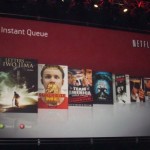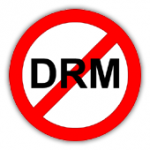Weekly News Roundup (8 February 2009)
A record hot Saturday (48 C/118 F), plus the recent dry spell, meant deadly fires have killed at least 36 people (update: the death toll has risen to 65 in the two hours since I started writing this post … damn) and destroyed many many homes in my home state of Victoria (Australia), with some entire towns wiped off the face of the earth. The heat was uncomfortable for people like me in the city, but it’s nothing compared to the devastation felt by others in the bush fire regions, and they will need a lot of help to rebuild, despite the brave efforts of firefighters. Everything else covered by this week’s WNR will seem trivial compared to what many have had to endure over the last day or two, but as they say, the show must go on.
I’ve posted a new poll to decide the “Game of the Year” for 2008. GTA IV is currently winning, but it’s still early days. My pick, Fallout 3, isn’t doing too badly, but I would still like to see it win without me having to rig the poll. Just kidding, of course. No really.
 Let’s get on with the copyright news. BitTorrent researchers say that copyright will be obsolete by 2010. I’m not sure I can agree with this. Sure, copyright will be hard and maybe impossible to enforce in 2010, but without copyright, anarchy would ensue. Nothing like a doomsday prediction to scare people.
Let’s get on with the copyright news. BitTorrent researchers say that copyright will be obsolete by 2010. I’m not sure I can agree with this. Sure, copyright will be hard and maybe impossible to enforce in 2010, but without copyright, anarchy would ensue. Nothing like a doomsday prediction to scare people.
Nobody is saying that content owners don’t have rights over their content. People create stuff to make money, and that’s what copyright is for. However, some of the measure employed to “protect” copyright just doesn’t work at best, and at worse, are seriously counter-productive. Online music sales have showed that it is possible to have a world where artists, studios, consumers and even pirates are all happy, perhaps not as happy as they could be, but still relatively content. And all this occurred after DRM died is no coincidence. Content owners need to respect the wishes of consumers, not fight them, and once you do that and once you give the people what they want, the money will naturally come. Hopefully the MPAA can learn from this and offer us easier, cheaper ways to get movies into your PCs – and once they do that, while it won’t stop piracy, I doubt the studios will care all that much when they’re raking it in. The gaming industry also needs to see that if people wanted to pirate your stuff, they’ll find a way to do it, so why bother inconveniencing legitimate customers? Fair Use is all that people want.
But they’re not getting it. Dubbed the “YouTube January Fair Use Massacre”, YouTube has thrown Fair Use out the window, where videos after videos have been banned or rejected, and many do not break any copyright laws. This “guilty until proven innocent” approach, no doubt demanded by studios, is exactly what’s wrong with the anti-piracy approach these days. The more the content owners push people, the more they are making the act of piracy a political statement, even by people normally who respect copyright. I would really like to see an “International Day of Piracy”, where people are encouraged to download something pirated on that day to protest the way legitimate users are being treated by the anti-piracy crusade. Now that would really send a message to the people in charge.
The MPAA’s attempt to add more DRM to broadcasts through Selectable Output Control failed when the FCC rejected their claims, but they’re not giving up. Or rather, the man behind the curtains has taken up the crusade. Sony will now take on the FCC to get SOC into people’s homes. Some people are surprised that the same company that fought the infamous Betamax case against Universal Studios has now done a 180 on the principles. It’s no surprise really, because principles were never in play – Sony were defending their own interests back then as a CE manufacturer, and now they’re defending their own interests as a studio, which they did not become until 1989. The MPAA’s withdraw might be due to the current economic climate, as they’re shedding a huge number of staff. While it would be easy to point and laugh, but for many of the people laid off, it was only a job to them, and the real “bad guys” are the people financially backing the MPAA.
The EU is trying to ban The Pirate Bay, while Danish ISPs being forced to also ban the torrent site has reacted negatively to the request and will fight this move. Meanwhile, TorrentSpy will try to appeal the $111 million judgement made against them. In Australia, our second largest ISP iiNet’s court case has started and iiNet has labeled studio efforts to sue them to being “like suing the electricity company for things people do with their electricity”. Quite right. The law firm representing the AFACT, Australia’s own version of the MPAA, is Gilbert & Tobin, the same law firm that sued Kazza in Australia and a firm that I’m not totally unfamiliar with.
 Onto HD new now. Reports say that $150 Blu-ray players are coming soon, which is good news for those still think prices are too high. However, $100 might be the perfect price for Blu-ray players, and people might still wait until this price is reached.
Onto HD new now. Reports say that $150 Blu-ray players are coming soon, which is good news for those still think prices are too high. However, $100 might be the perfect price for Blu-ray players, and people might still wait until this price is reached.

Netflix on the Xbox 360: Already a million subscribers
I say they should just sell players at cost, and then get studios to subsidize CE firms through future revenue sharing. If everyone has a Blu-ray player, then Blu-ray wins against DVD, even if not all people are buying Blu-rays. Of course, CE firms came into this wanting to make more money, not less, and studios the same, and revenue sharing won’t help either party achieve all that they had wished for. To further illustrate this point, this week’s Nielsen VideoScan sales figures, courtesy of Home Media Magazine, shows that for every extra dollar earned by Blu-ray, DVDs are hemmoraging an amazing $7.20 in lost sales compared to the same time last year. The pro Blu-ray people will say that’s an extra dollar that otherwise wouldn’t have been earned, while the anti Blu-ray people might point to the cost of upgrading to Blu-ray forcing people to spend less in the short term at least. Either way, the effects Blu-ray has on the home video market is currently quite underwhelming.
The latest research now says that Blu-ray will thrive until at least 2017, and only then will video on demand take over. I think that’s a bit optimistic, because VOD is already here. Even in a typically technological backwards country like Australia (well not for gadgets and such, but for things like broadband and infrastructure), we have two types of VOD (near, and push – see the linked news item and my posts in the discussion thread for more info) available to almost every home already (through paid subscription). IP based VOD will be here as soon as broadband speed and bandwidth catches up, there’s no other piece of technology that needs to be invented, and most people already have several devices capable of viewing VOD (any device with Internet connection, phones, game consoles, and now even TVs). And a million people in the US has already subscribed to the Netflix service on the Xbox 360, the speed of uptake indicates there is very much a market for VOD and that the technical barriers are quickly falling.
![]() And finally in gaming, Sony might start using a 45 nm process to make cell processors (or rather, Toshiba will and Sony will buy it from them), which could cut costs as well as make the PS3 run even cooler. Anything that goes towards making the PS3 cheaper can’t be a bad thing.
And finally in gaming, Sony might start using a 45 nm process to make cell processors (or rather, Toshiba will and Sony will buy it from them), which could cut costs as well as make the PS3 run even cooler. Anything that goes towards making the PS3 cheaper can’t be a bad thing.
Microsoft has finally fixed the HDMI issue introduced in the NXE update. Better late than never, I suppose.
And Amazon is launching a game download service. Mostly small, independently produced titles at the moment, but everything is moving towards downloads these day, aren’t they?
That’s all the news I found this week. Will try to bring you more next week if I can find them/make them up in time. See ya.


